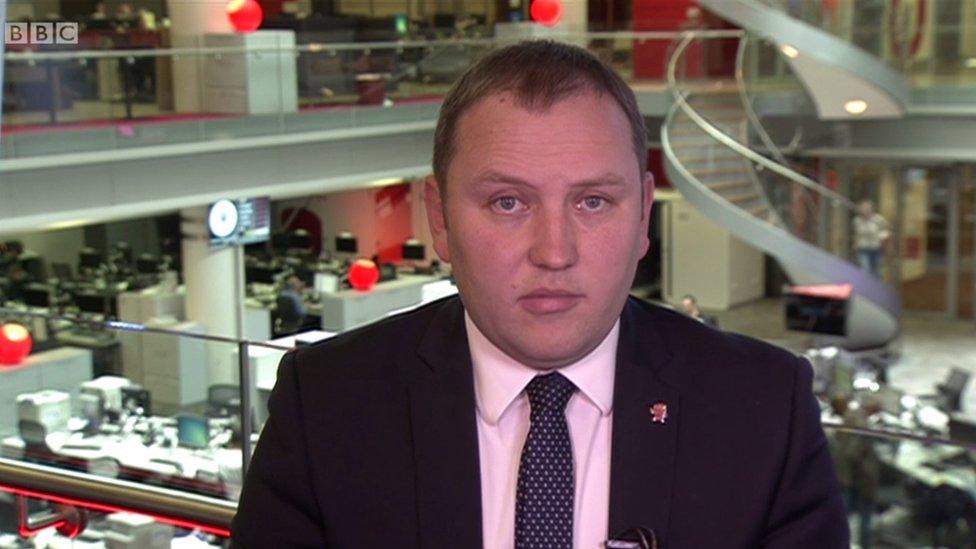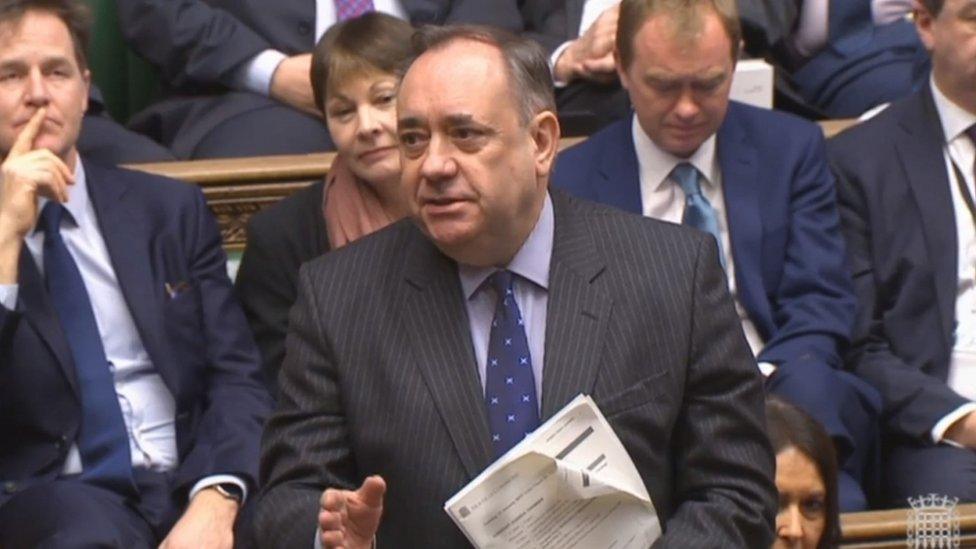Scottish Labour MP Ian Murray to oppose Brexit bill
- Published

Mr Murray quit Labour's shadow cabinet last year in protest against Jeremy Corbyn's leadership of the party
Scottish Labour's only MP has confirmed he will vote against the UK government's bid to formally begin the process of leaving the EU.
Ian Murray said he represented a constituency where 78% of voters backed Remain during last year's referendum.
And he said he would be "standing up for them in the Commons by voting against the triggering of Article 50".
The vote on the European Union (Notification of Withdrawal) Bill will be held on Tuesday evening.
The government is expected to win the vote with the backing of most Conservative and Labour MPs.
But Labour leader Jeremy Corbyn faces a sizeable rebellion, with up to 30 of his party's MPs set to defy a three-line whip and vote against the government.
The SNP has tabled an amendment which would block the bill, and the Liberal Democrats will also oppose the government.
Its former leader, Alex Salmond, told the Commons debate on Tuesday afternoon that pro-Brexit politicians had been gripped by "mad MP disease" and were now taking "the entire country into the hole".

Alex Salmond said politicians had been gripped by "mad MP disease" over Brexit
The former Scottish first minister said that triggering Article 50 was "politically crazy", and added that Britain would now be left in an "embarrassing" relationship with US President Donald Trump.
Confirming that he would join the SNP, Lib Dems and Labour rebels in voting against the legislation, Mr Murray - who quit as shadow Scottish secretary last year in protest against Mr Corbyn's leadership - said he not could support the "extreme hard Brexit that Theresa May is pursuing".
In a letter to constituents, he added: "I have signed all Labour's amendments to the bill so far, and I will support Labour amendments throughout the Brexit process, as parliament must do everything it can to get the best deal for Scotland and the UK - including safeguarding the rights of EU nationals to remain here.
"But I cannot vote for the extreme hard Brexit that Theresa May is pursuing, which risks damaging the economy of Edinburgh, Scotland and the entire UK.
"The Tories are threatening to inflict economic vandalism on our country."
David Davis: Listen to the people on Brexit
Two shadow ministers have quit Labour's front bench in order to oppose the bill, while MPs Stephen Timms and Lyn Brown told the Commons they would also vote against it.
Shadow Foreign Secretary Emily Thornberry defended the Labour leadership's stance, telling BBC Radio 4's Today programme that while the party believed in the EU, "we believe more strongly than anything else about democracy".
Although it will support the final vote on the bill, Labour will first try to amend it, including calling for a "meaningful vote" on the final Brexit deal.
"If Theresa May loses face because she has got the wrong deal that doesn't have the support of parliament - tough," Ms Thornberry added.
'No return'
On Monday, politicians from both sides of the debate made impassioned speeches as they set out their arguments in the Commons.
The SNP's Stephen Gethins said passing the government's bill would be an "act of constitutional and economic sabotage".
He found an unlikely ally in former Conservative chancellor Ken Clarke, who described visions of the future set out by Brexiteers as a "wonderland" fantasy.
But the UK government's Brexit secretary, David Davis, told the debate that MPs would not be able to vote to block Brexit, telling them the "point of no return" had already passed.
He added: "This is not a bill about whether the UK should leave the EU or indeed how it should do it.
"It is simply about parliament empowering the government to implement a decision already made, a point of no return already passed.
"We asked the people of the UK if they wanted to leave the EU. They decided they did. So at the core of this Bill lies a very simple question. Do we trust the people or not?"